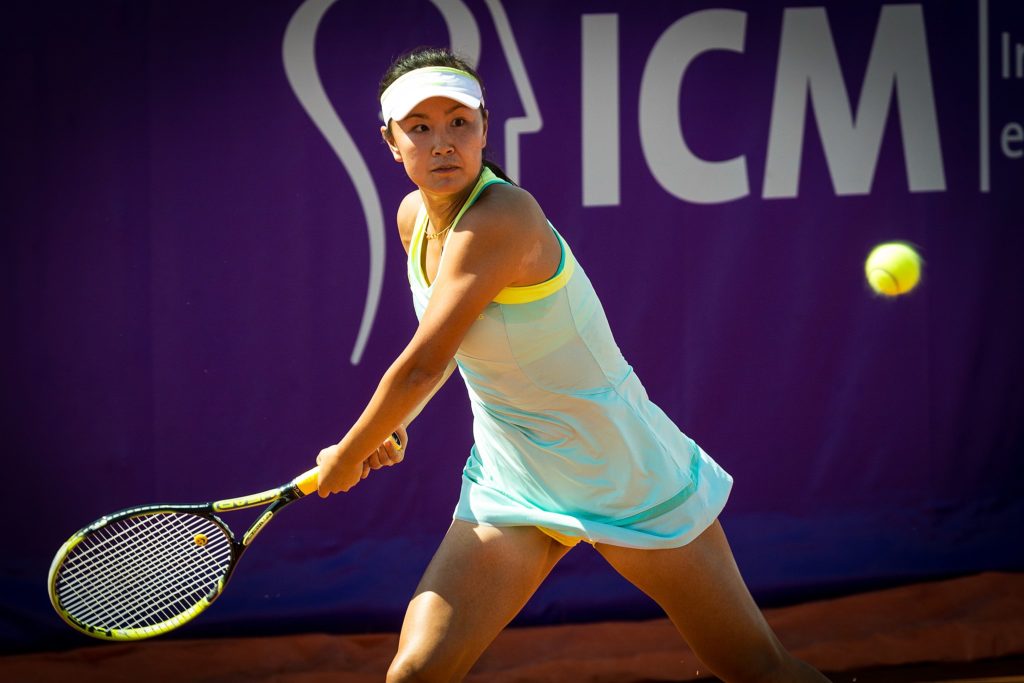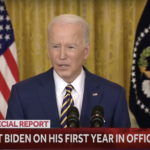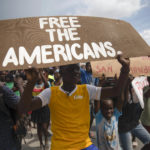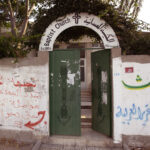
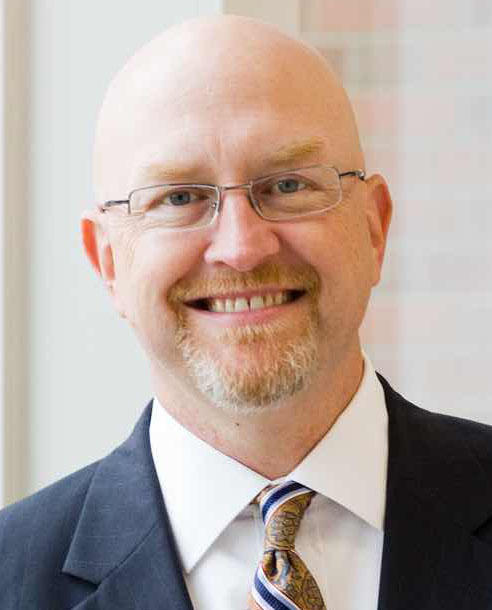 Where is Peng Shuai? Perhaps you have seen the social media posts asking this question. But, first, unless you are a hardcore tennis fan, you might need some clarity on about Peng Shuai. She is a Chinese professional tennis player with outstanding accomplishments in the Women’s Tennis Association (WTA). She rose to world No. 14 in singles (2011) and became world No. 1 in doubles in 2014. Shuai became the first Chinese tennis player ever ranked world No. 1 in doubles or singles and has won 25 titles on the WTA tour in singles and doubles.
Where is Peng Shuai? Perhaps you have seen the social media posts asking this question. But, first, unless you are a hardcore tennis fan, you might need some clarity on about Peng Shuai. She is a Chinese professional tennis player with outstanding accomplishments in the Women’s Tennis Association (WTA). She rose to world No. 14 in singles (2011) and became world No. 1 in doubles in 2014. Shuai became the first Chinese tennis player ever ranked world No. 1 in doubles or singles and has won 25 titles on the WTA tour in singles and doubles.
What happened to Peng Shuai?
In a lengthy November post on Weibo, a Chinese social media platform similar to Twitter, 35-year-old Shuai alleged she was raped by one of China’s senior political leaders, former Vice-Premier Zhang Gaoli. Her post almost immediately disappeared from Weibo, and then she suddenly disappeared from public view as well. Since that time, the Chinese government has censored any mention of Shuai or her accusation against Zhang Gaoli.
Concern about her well-being increased as friends and colleagues could not directly contact Shuai. The #WhereIsPengShuai hashtag took off on social media, and leaders in the tennis world began to voice concern. One of the loudest voices expressing concern is WTA chairman Steve Simon. A few weeks after Shuai’s disappearance, Simon received an email, which was also shared on American social media by Chinese-affiliated outlets, purportedly from Shuai, that said: “everything is fine.” She just did not want to be “bothered” right now.
The email was almost universally mocked as fabricated or orchestrated by the Chinese government. Simon stated that the email “only increased his concerns.” A short time later, leaders of the International Olympic Committee (IOC) participated in a video call with Shuai and stated she appeared safe and well. Many were outraged by the IOC’s willingness to participate in a video call that was little more than propaganda on behalf of the Chinese government by IOC officials wanting to avoid a diplomatic boycott of the Beijing Winter Olympics. After pressure, the IOC now says it cannot provide any assurances about Shuai’s well-being.
Since that time, Chinese state-affiliated media outlets have shown pictures of Shuai out eating dinner and as a celebrity at a couple of sporting events. She recently told a Chinese state-friendly Singaporean newspaper that she had been misunderstood, she had not been sexually assaulted, and she is free to move around as she wishes.
Of course, none of these videos, pictures, or statements offer any proof that Shuai can move and speak without coercion or censorship. China’s authoritarian government has a long history of disappearing people and threatening them and their families until they coerce a retraction of any unfavorable comments toward the Communist Party leadership.
The shame of looking away
Sadly, it seems the financial benefit of looking the other way at China’s human rights atrocities has proven too strong a temptation for many businesses, including sports leagues and entertainment companies. For example, the Australian Open tennis tournament, run by Tennis Australia, at one time decided to turn away all spectators wearing any clothing that asked, “Where is Peng Shuai?” Their actions were an apparent capitulation to the Chinese regime and the Chinese investors in the tournament. Thankfully, on Jan. 25, after public pressure, Tennis Australia reversed its policy.
Recently, Chamath Palihapitiya, a billionaire venture capitalist and part owner of the Golden State Warriors, said out loud what is a reality for too many in positions of power and influence. He said in an interview, when the genocide of the Uyghurs in China was mentioned, “Let’s be honest, nobody cares about what’s happening to the Uyghurs. … I’m telling you a very hard, ugly truth. Of all the things that I care about, it is below my line.”
The danger in the Shuai situation is that the rest of the world just moves on and forgets about her condition over time. However, Simon has been one heroic figure who has chosen to defend human rights over financial interests in this situation. He helped move a portion of the WTA season into China to take advantage of a lucrative emerging Chinese market. In 2018, the WTA signed a 10-year deal to move the WTA Finals to Shenzhen, China, with a guaranteed $14 million in prize money.
Nevertheless, Simon has put the well-being of Shuai over financial interests from the beginning, saying, “Peng Shuai must be allowed to speak freely, without coercion or intimidation from any source” and, “Her allegation must be respected, investigated with full transparency and without censorship.” He followed his words with actions by suspending all WTA events in China. The result of the WTA actions could be an estimated $1 billion loss of revenue.
Simon is unfazed, asserting, “The WTA will do everything possible to protect its players.” However, he also urges, “As we do so, I hope leaders around the world will continue to speak out so justice can be done for Peng, and all women, no matter the financial ramifications.” While Simon’s courage and clarity in facing down China’s authoritarian regime has been heartening, the fact that so few have joined him is disheartening.
A Christian’s responsibility
For those of us who follow Jesus Christ as Lord and Savior, our voices should be the loudest on behalf of those persecuted and marginalized. We are to care about the lives of God’s image-bearers from conception until natural death. The writer of Proverbs commands, “Speak up for those who cannot speak for themselves, for the rights of all who are destitute. Speak up and judge fairly; defend the rights of the poor and needy” (Proverbs 31:8-9).
Toward the end of the post where she made allegations of ongoing sexual abuse, Shuai asked a question that many persecuted, victimized and dehumanized people have asked, writing: “I thought, am I still a human?” May followers of Christ answer her question with a resounding, yes, by the way we speak up for her life and liberty. Tennis is a game; human rights are not.
It has been right to ask, “Where is Peng Shuai?” But we must also ask, “Where are we?” Where are we when the opportunity comes to speak and act on behalf of the persecuted, suffering, and vulnerable? Let us be those who hear and heed the words of the Lord Almighty: “Administer true justice; show mercy and compassion to one another” (Zechariah 7:9).
